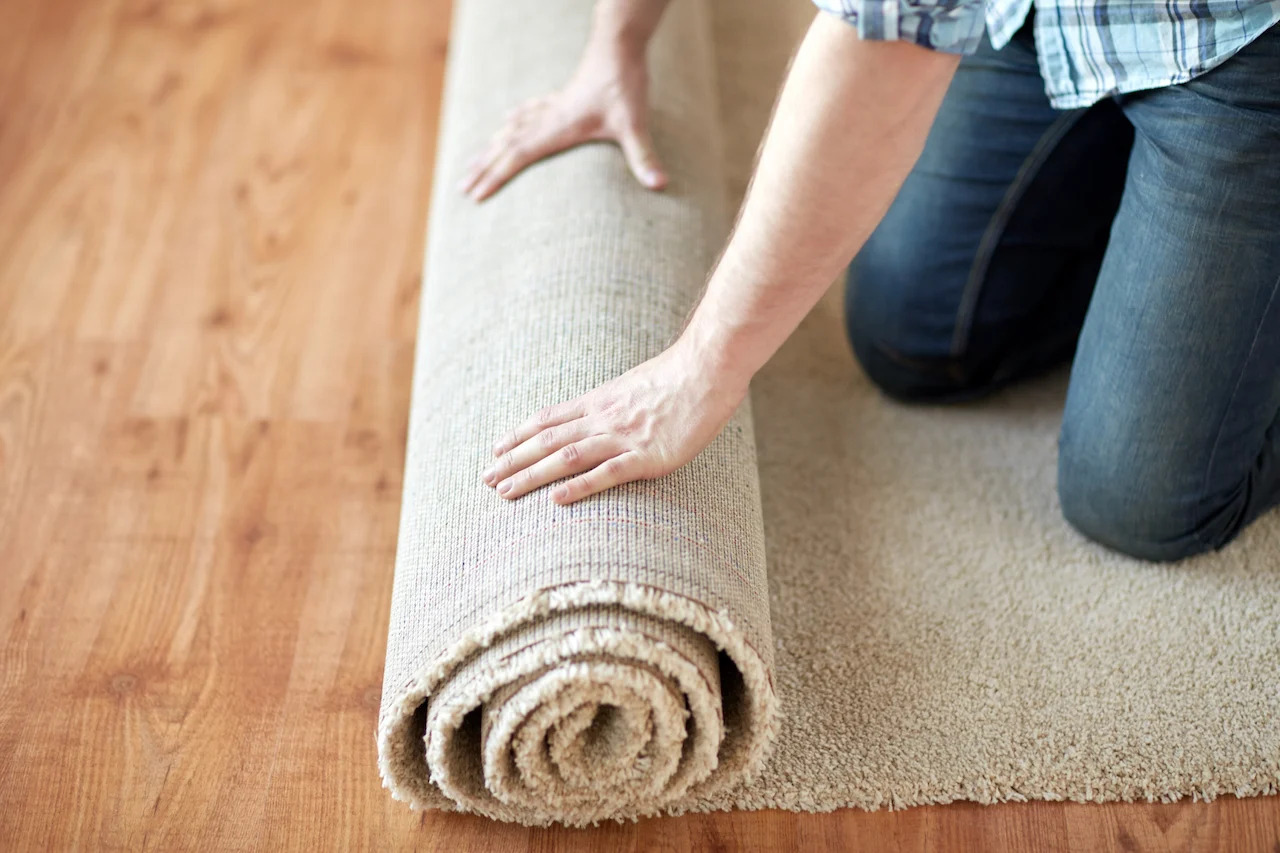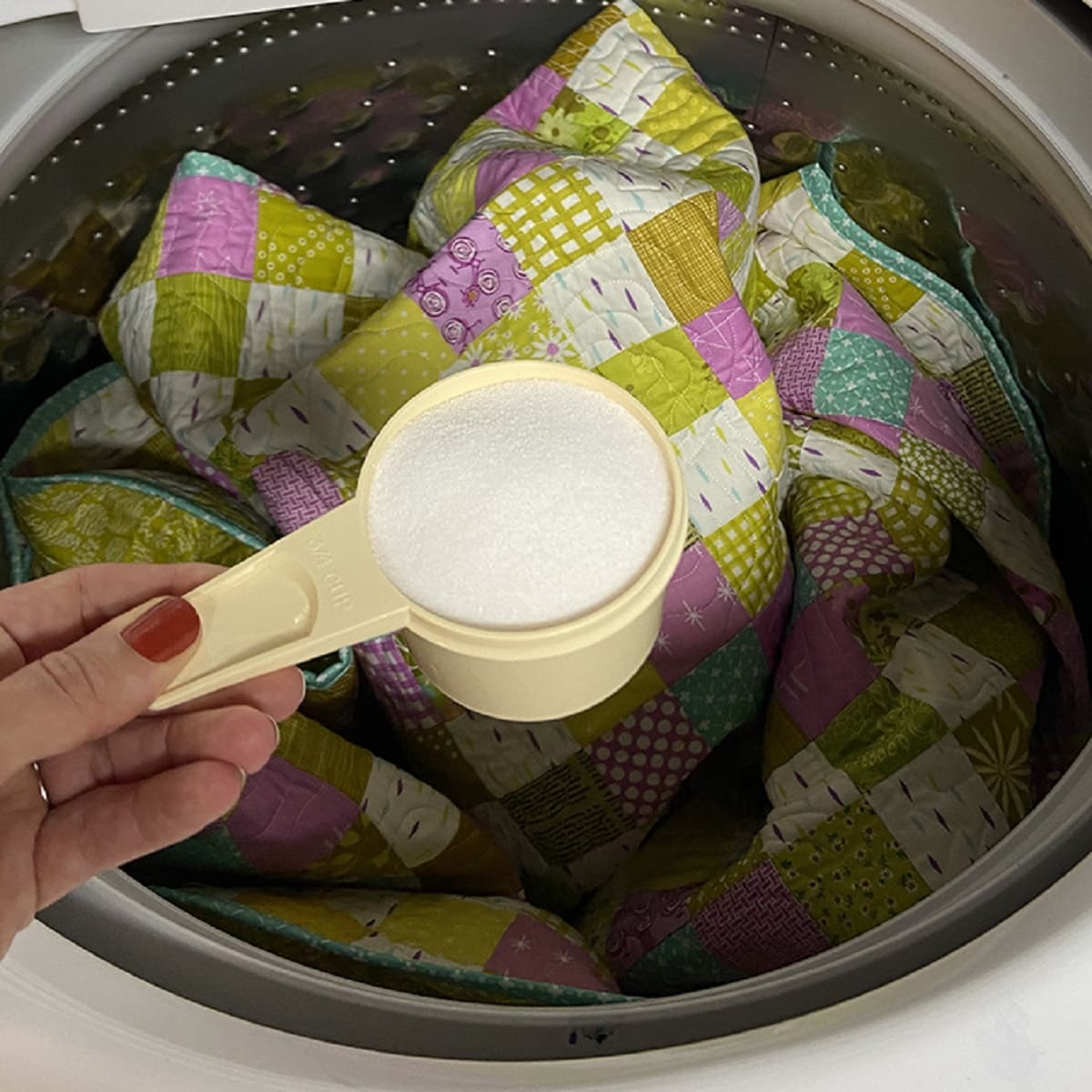Home>Storage Ideas>Bedroom Storage>How Often Should You Wash Your Sheets? Probably More Than You Think


Bedroom Storage
How Often Should You Wash Your Sheets? Probably More Than You Think
Modified: January 20, 2024
Discover the importance of bedroom storage and how often you should wash your sheets. Get expert tips for maintaining a clean and organized sleep environment.
(Many of the links in this article redirect to a specific reviewed product. Your purchase of these products through affiliate links helps to generate commission for Storables.com, at no extra cost. Learn more)
Introduction
Welcome to the ultimate guide on how often you should wash your sheets. While it may seem like a mundane chore, keeping your sheets clean is crucial for maintaining a healthy and comfortable sleeping environment. In this article, we will delve into the importance of cleanliness, discuss the various factors that determine the frequency of washing, provide recommended guidelines, highlight the potential risks of not washing your sheets enough, and offer tips for maintaining clean sheets.
We spend about a third of our lives in bed, which means our sheets come into direct contact with our bodies every night. Over time, these sheets accumulate sweat, dead skin cells, body oils, dust mites, and allergens. Failing to wash them regularly can result in the buildup of bacteria, mold, and other harmful substances.
The frequency at which you should wash your sheets depends on several factors, including personal hygiene habits, lifestyle, and environmental factors. By understanding these factors, you can make an informed decision about how often to launder your sheets.
Key Takeaways:
- Regularly washing your sheets is crucial for a healthy sleep environment, preventing bacteria buildup, skin irritations, and poor sleep quality. Follow recommended guidelines and tips for maintaining clean and fresh sheets.
- Factors such as personal hygiene, allergies, and environmental conditions determine the frequency of washing your sheets. Prioritize cleanliness to enjoy a rejuvenating and soothing bedtime routine.
Read more: How Often Should You Change Your Bed Sheets
Importance of Cleanliness
Cleanliness is not just about maintaining a neat and tidy appearance; it has a direct impact on our overall health and well-being. When it comes to bedding, keeping your sheets clean is especially crucial due to the close contact they have with your body for extended periods of time.
Regularly washing your sheets helps remove sweat, oils, and dead skin cells that accumulate on them. These substances can become breeding grounds for bacteria, dust mites, and other allergens. Failure to remove them can result in various health problems, including allergies, respiratory issues, and skin irritations.
In addition to the physical health benefits, clean sheets also contribute to good mental and emotional well-being. Climbing into a fresh, crisp, and clean bed at night can promote feelings of comfort, relaxation, and improved sleep quality. On the other hand, sleeping on dirty or unpleasant-smelling sheets can cause discomfort, restlessness, and can potentially disrupt your sleep.
Furthermore, clean sheets can help prolong the lifespan of your mattress. When dirt, oils, and other substances accumulate on your sheets, they can transfer onto your mattress, causing stains, odors, and potentially attracting pests. Regularly washing your sheets reduces the likelihood of these issues, ensuring the longevity and freshness of your mattress.
Factors that Determine Washing Frequency
The frequency at which you should wash your sheets can vary depending on several factors. Understanding these factors will help you determine the appropriate washing schedule for your specific needs. Here are some key factors to consider:
1. Personal Hygiene:
Individuals with different hygiene practices may require different washing frequencies. If you shower before bed, rarely sweat during sleep, and generally maintain good personal hygiene, you may be able to go longer between washes. However, if you have oily skin, sweat excessively during sleep, or have allergies, more frequent washing may be necessary.
2. Environmental Factors:
The environment you sleep in can impact the frequency of sheet washing. If you live in a humid climate, your sheets are more likely to accumulate moisture and develop mildew or mold. Similarly, if you have pets that sleep in your bed, their hair and dander can build up quickly and require more frequent washing.
3. Allergies and Sensitivities:
If you suffer from allergies or have sensitivities to dust mites, pollen, or certain fabrics, it is important to wash your sheets regularly to minimize allergens. For those with severe allergies, washing sheets at least once a week may be necessary to reduce symptoms.
4. Sleepwear Habits:
If you sleep in full pajamas or use a sleep sack, your sheets may not come into direct contact with your body as much as if you sleep naked or only with underwear. The less direct contact, the longer you may be able to go between washes.
5. Overall Cleanliness of Your Bedroom:
If you keep your bedroom clean and dust-free, your sheets may stay cleaner for longer. Regular vacuuming, dusting, and maintaining good indoor air quality can help reduce the buildup of allergens and minimize the need for frequent sheet washing.
Considering these factors, it is important to find a balance between maintaining cleanliness and avoiding excessive washing. Now that we have explored the factors that determine washing frequency, let’s move on to the recommended guidelines for how often you should wash your sheets.
Recommended Washing Frequency
While personal preferences and circumstances can influence the frequency at which you wash your sheets, here are some general guidelines to help you determine how often you should launder them:
Read more: How Often Should You Clean A Washing Machine
1. Weekly:
The most common recommendation is to wash your sheets once a week. This frequency allows for the removal of sweat, dead skin cells, and other debris that accumulate during regular use. It also helps maintain a fresh and hygienic sleeping environment.
2. Bi-Weekly:
If weekly washing seems too frequent for your schedule or if you have no specific allergies or sensitivities, washing your sheets every two weeks is a reasonable alternative. This timeframe still ensures cleanliness and minimizes the buildup of dirt, oils, and allergens.
3. Monthly:
Situations may arise where you are unable to adhere to a weekly or bi-weekly washing routine. In such cases, washing your sheets at least once a month is better than not washing them at all. However, keep in mind that this extended interval may result in a less hygienic sleeping environment.
4. Seasonal:
For those who live in colder climates or use heavy duvet covers during the winter months, washing sheets on a seasonal basis may be acceptable. Since sheets are less likely to accumulate sweat and oils in colder weather, and are often covered with additional blankets, a longer interval between washes can be considered.
Remember, these recommendations provide a general guideline, but ultimately the decision on how often to wash your sheets should be based on personal factors such as hygiene, comfort, and environmental conditions.
Now that we have discussed recommended washing frequencies, let’s explore the potential risks of not washing your sheets enough.
Read more: How Often Should You Clean Your Fireplace
Potential Risks of Not Washing Sheets Enough
Neglecting to wash your sheets regularly can have negative consequences for both your health and overall well-being. Here are some potential risks of not washing your sheets enough:
1. Buildup of Bacteria and Allergens:
Over time, sweat, oils, dead skin cells, and other bodily fluids accumulate on your sheets. This creates an ideal environment for bacteria, dust mites, and allergens to thrive. Breathing in these particles can lead to allergic reactions, respiratory problems, and skin irritations.
2. Increased Risk of Infections:
If you have any cuts, wounds, or open sores, sleeping on unwashed sheets can expose them to bacteria and impede the healing process. Additionally, not washing your sheets can lead to the spread of infectious diseases, particularly if you are sharing your bed with a partner or have overnight guests.
3. Poor Sleep Quality:
Dirty sheets can impact the quality of your sleep. The discomfort caused by sleeping on grimy and odorous sheets can lead to restlessness, tossing and turning, and difficulty falling asleep. A lack of proper sleep can negatively affect your mood, energy levels, and overall well-being.
Read more: How Often Should You Clean Your Humidifier
4. Skin Breakouts and Irritations:
When sweat, oils, and bacteria linger on your sheets, they can exacerbate existing skin conditions or cause new ones to develop. Acne, rashes, and irritation are common side effects of sleeping on dirty sheets, particularly for those with sensitive skin.
5. Mattress Damage:
Not washing your sheets can result in dirt and stains transferring onto your mattress. Over time, this can lead to discoloration, odors, and potentially damage the fabric and structure of your mattress. Regular washing of your sheets helps protect your investment in a quality mattress.
Considering these potential risks, it is clear that maintaining a regular washing routine for your sheets is crucial for your health, sleep quality, and overall comfort. Fortunately, there are some simple tips you can follow to ensure your sheets stay clean and fresh.
Let’s explore these tips in the next section.
Tips for Maintaining Clean Sheets
Maintaining clean sheets doesn’t have to be a daunting task. By following these simple tips, you can ensure that your sheets stay fresh, hygienic, and comfortable:
1. Wash Sheets Properly:
When laundering your sheets, follow the care instructions provided by the manufacturer. Use an appropriate detergent, preferably one that is hypoallergenic, and wash with warm water. Avoid using harsh chemicals or bleach as they can damage the fabric and irritate your skin.
Read more: How Often Should You Clean Your Rugs
2. Regularly Change Pillowcases:
Pillowcases come into direct contact with your face and hair, accumulating oils, sweat, and bacteria. To maintain cleanliness, change your pillowcases at least once a week or more frequently if you have oily skin or use hair products that transfer onto the fabric.
3. Use Mattress Protectors:
Investing in a mattress protector can help prevent spills, stains, and the buildup of allergens on your mattress. A mattress protector acts as a barrier, keeping your mattress clean, fresh, and prolonging its lifespan.
4. Vacuum Your Mattress:
Regularly vacuuming your mattress can help remove dust, pet hair, and other debris that accumulate over time. This reduces the transfer of dirt and allergens onto your sheets and contributes to a cleaner sleeping surface.
5. Rotate and Air Out Your Sheets:
Give your sheets some breathing space by rotating them and allowing them to air out between uses. This helps prevent moisture buildup and promotes freshness. Hanging your sheets outside in the sun can also help eliminate odors and disinfect naturally.
Read more: How Often Should You Clean Your Blinds
6. Avoid Eating and Drinking in Bed:
While it may be tempting to indulge in snacks or beverages while lounging in bed, doing so can lead to spills and stains on your sheets. To maintain cleanliness, reserve eating and drinking for designated areas outside of the bed.
7. Store Clean Sheets Properly:
When not in use, store your clean sheets in a cool, dry place to prevent them from accumulating dust and absorbing odors. Consider using airtight storage containers or vacuum-sealed bags to maintain freshness.
By incorporating these tips into your routine, you can ensure that your sheets remain clean, fresh, and free from allergens and bacteria. Now that you have learned how to maintain clean sheets, let’s conclude our guide.
Conclusion
Keeping your sheets clean is an essential part of maintaining a healthy and comfortable sleep environment. Regularly washing your sheets helps remove sweat, oils, dead skin cells, and allergens that accumulate over time. By following recommended guidelines and considering factors such as personal hygiene, environmental conditions, and allergies, you can determine the appropriate frequency for washing your sheets.
The potential risks of not washing your sheets enough include the buildup of bacteria and allergens, increased risk of infections, poor sleep quality, and skin breakouts. Neglecting to wash your sheets regularly can also result in damage to your mattress over time. Therefore, it is important to prioritize cleanliness and implement effective strategies for maintaining clean sheets.
By following the tips provided, such as washing sheets properly, regularly changing pillowcases, using mattress protectors, and airing out your sheets, you can ensure a fresh and comfortable sleeping experience. Additionally, avoiding eating and drinking in bed, and storing clean sheets properly can help maintain their cleanliness and longevity.
Remember, the frequency of washing your sheets may vary based on individual factors, such as personal hygiene, allergies, and environmental conditions. It is important to find the right balance that works for you, ensuring a clean and hygienic sleep environment while keeping your sheets comfortable and fresh.
Now that you have all the information and tips you need, it’s time to put them into practice and enjoy the benefits of sleeping on clean sheets. So go ahead, prioritize cleanliness, and transform your bedtime routine into a rejuvenating and soothing experience.
Frequently Asked Questions about How Often Should You Wash Your Sheets? Probably More Than You Think
Was this page helpful?
At Storables.com, we guarantee accurate and reliable information. Our content, validated by Expert Board Contributors, is crafted following stringent Editorial Policies. We're committed to providing you with well-researched, expert-backed insights for all your informational needs.










0 thoughts on “How Often Should You Wash Your Sheets? Probably More Than You Think”